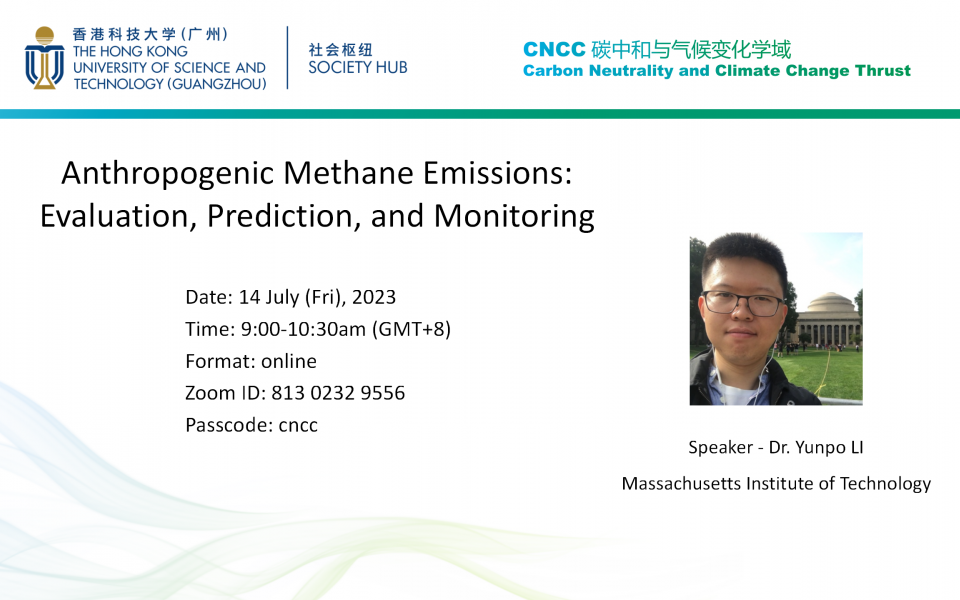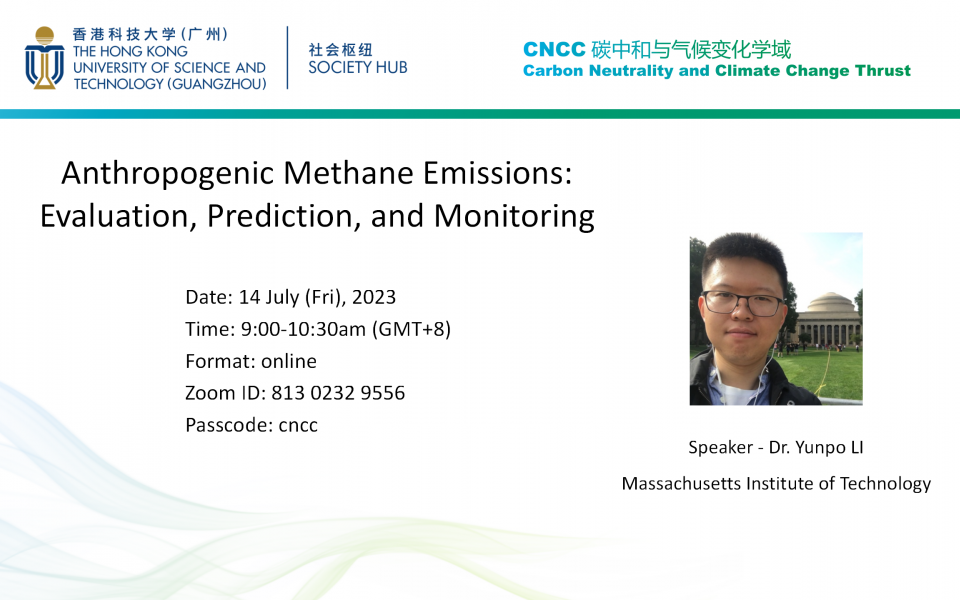CNCC Thrust Seminar/Anthropogenic methane emissions: evaluation, prediction, and monitoring
Supporting the below United Nations Sustainable Development Goals:支持以下聯合國可持續發展目標:支持以下联合国可持续发展目标:
Human beings are experiencing man-made global warming due to the emission of greenhouse gases, among which methane is a highly potent one, with a 20-year global warming potential 80 times higher than that of carbon dioxide. A systematic approach is needed to understand, monitor, and mitigate anthropogenic emissions such as those from the oil and gas (O&G) industry. In this talk, I will address two examples of critical challenges in understanding and monitoring such emissions, namely, (i) the lack of understanding in a potential methane emission pathway via the groundwater system, and (ii) the difficulty to continuously monitor a large number of methane emitters. For (i), groundwater samples were collected from more than 300 sites in the Eastern U.S. for measuring dissolved methane concentration. Based on multiple lines of evidence, methane concentration was not systematically influenced by O&G development but likely affected by sulfate-mediated biogeochemical processes induced by coal mining. For (ii), machine learning models were trained to predict O&G well integrity issues related to fugitive methane emissions. The prediction results could enable prioritized monitoring of a subset of wells with higher emission risk, thus reducing the number of sensors needed. Furthermore, I will introduce my research vision to integrate novel sensing technology with data science for highly efficient emission detection and fixation. A tiered monitoring system consisting of satellites, airplanes, vehicle-mounted sensors, and stationary sensors will be utilized to detect methane emissions, and the resulting data will facilitate the prediction of future emissions and the optimization of sensor placement. As an example, the evaluation and monitoring of methane emissions from the wastewater treatment industry will be discussed.
Yunpo Li is a PhD candidate at the Department of Civil and Environmental Engineering, Massachusetts Institute of Technology. He received interdisciplinary research training in geoscience, data science, and material science, and his mission is to slow down climate change specifically by reducing methane emissions. Before coming to MIT, Yunpo obtained his Master’s degree from Stanford University in Civil and Environmental Engineering, and his Bachelor’s degree from Shanghai Jiao Tong University in Environmental Science and Engineering.

